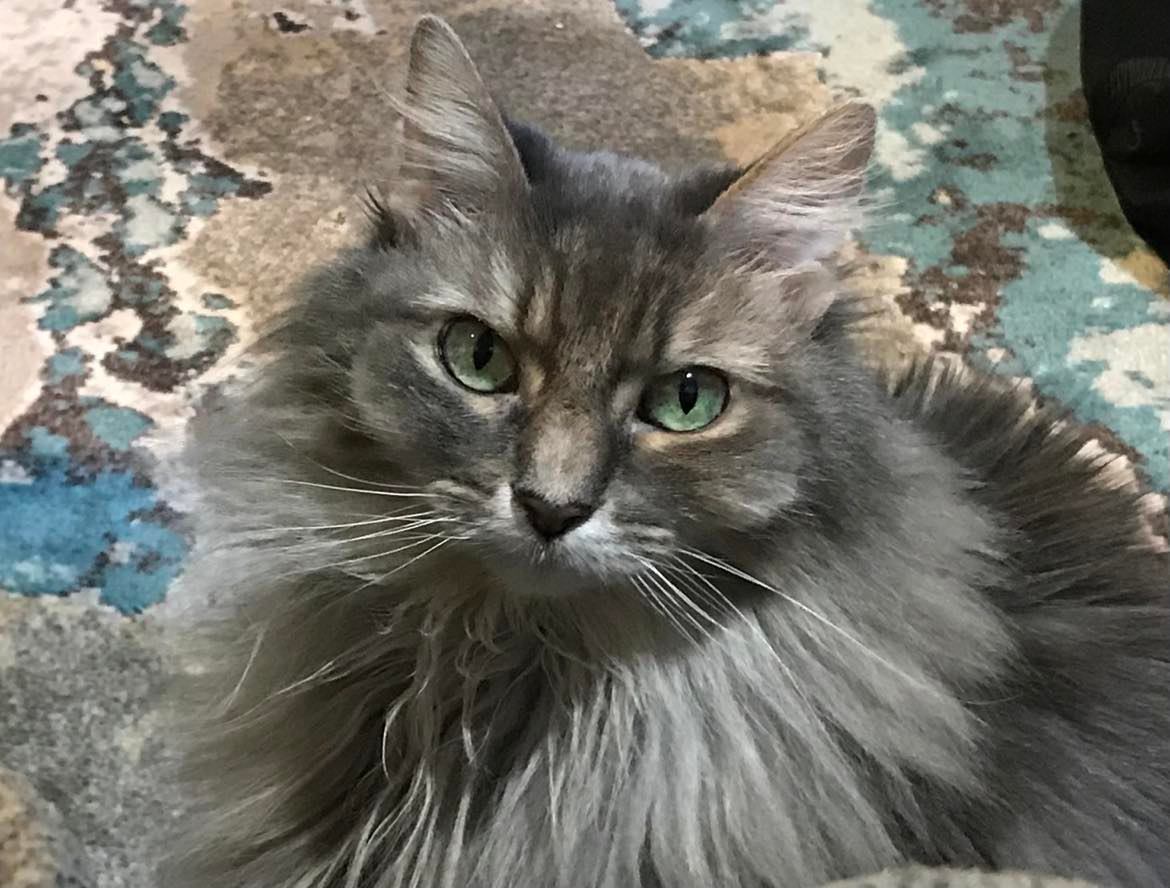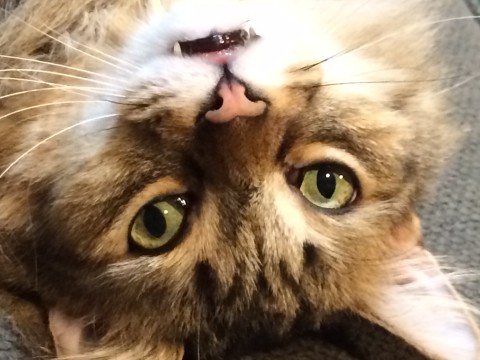This article is republished from my column on Examiner.com, with minor alterations
So you’re going to travel, but you can’t take your cats with you. If you have to find a new pet sitter after having one who knew all your cats for years, you might be concerned about what she needs to know. This is also true if you’ve never hired a pet sitter before. According to an article on Princeton Veterinary Hospital’s website, there’s a lot of information you should tell your pet sitter so your cats have the best experience possible.
The most important things to tell your pet sitter are your cats’ regular routines
First off, you should tell your pet sitter your cats’ regular feeding schedules and habits. Where is their food kept? Does it have to be stored a certain way (frozen, refrigerated, in a closed bin)? Are they fed on a schedule, do they get a certain amount of food, are they free-fed? Also, what treats do they get and how often do they get them? Do they get them right before or after meals, or are they used to them in the middle of the day, or right before bed? Do they get treats at all?
If your cats are indoor-outdoor cats that prefer going outside to using a litter box inside, then you should also tell your pet sitter about their bathroom habits. You’re aware that they want to go outside within a certain amount of time after eating, whether you have a pet door or not, but your pet sitter doesn’t know that. You also know how often you have to let them out during the day to urinate. If you have a pet door, and they can come and go as they please, your pet sitter ought to be aware of that so they know to look outside if someone’s missing at mealtime.
You also need to tell your pet sitter about medications that your cats might be taking, along with their side effects. How often does your cat take her medication? Does she take it before, after, or with her food? Are there any usual side effects, such as hyperactivity, lethargy, suppressed appetite, more frequent urination, anything along with those lines? How is the medication administered? This is all information you should actually write down, so your pet sitter has it easily at hand.
You should also tell your pet sitter where extra food and medication are, in case she runs out while you’re gone.
Your pet sitter needs your contact and emergency information, too
As with babysitters, you should give your pet sitter the number of where you’re staying, along with your cell phone number, vet’s number, and emergency contacts. Sometimes, things do wrong and your pet sitter will need to be able to get in touch with you immediately, and possibly your vet or the nearest emergency clinic. Having these numbers within easy reach can mean the difference between an emergency and a tragic disaster. Princeton Veterinary Hospital also recommends writing down what you’d prefer they do if there is an emergency.
The location of your cats’ favorite toys, and whether it’s okay to leave them out or put them away, will also help your pet sitter keep things as normal and stress-free for your cats as possible. Who likes to play with which toys, and when? do any of your cats refuse to play if the others are playing? Is there a specific toy of her own that she should have while the others are playing?
Also, tell your pet sitter where your cats’ favorite blankets, pillows, stuffed animals, perches, and hiding places are, along with how they respond to strangers, so that she knows where your cats are most likely to be when she shows up each day. This is especially important if you have a shy cat that likes to hide. Your pet sitter needs to be able to locate your hiding cat quickly, to be sure that everyone is present and accounted for when they first arrive, and then again when they leave.
Other information you should tell your pet sitter
You should have a first aid kit for your cats, also, and your pet sitter ought to know where this is. If you don’t have one, you can buy them online, or you can read this article from Drs. Foster and Smith about how to make one. This will help your pet sitter handle momentary illnesses and minor injuries, such as scratches from squabbling.
Finally, you should tell your pet sitter about any special behavior she needs to know about. For instance, some cats stick their paws in their water before they drink it, or they toss their food around, and then eat it off the floor. If your cat vomits frequently, you should mention that to your pet sitter, especially if you control the vomiting my limiting how much your cat eats at one time. If all your cats always sit in the kitchen while you’re preparing their food, that’s important information, because one of your cats not coming might indicate that she’s not feeling well. A cat that insists he’s starving to death at every meal time just sitting quietly might also indicate a problem. Your pet sitter needs to know what’s normal for your cats, so she knows what’s worrisome, too.




